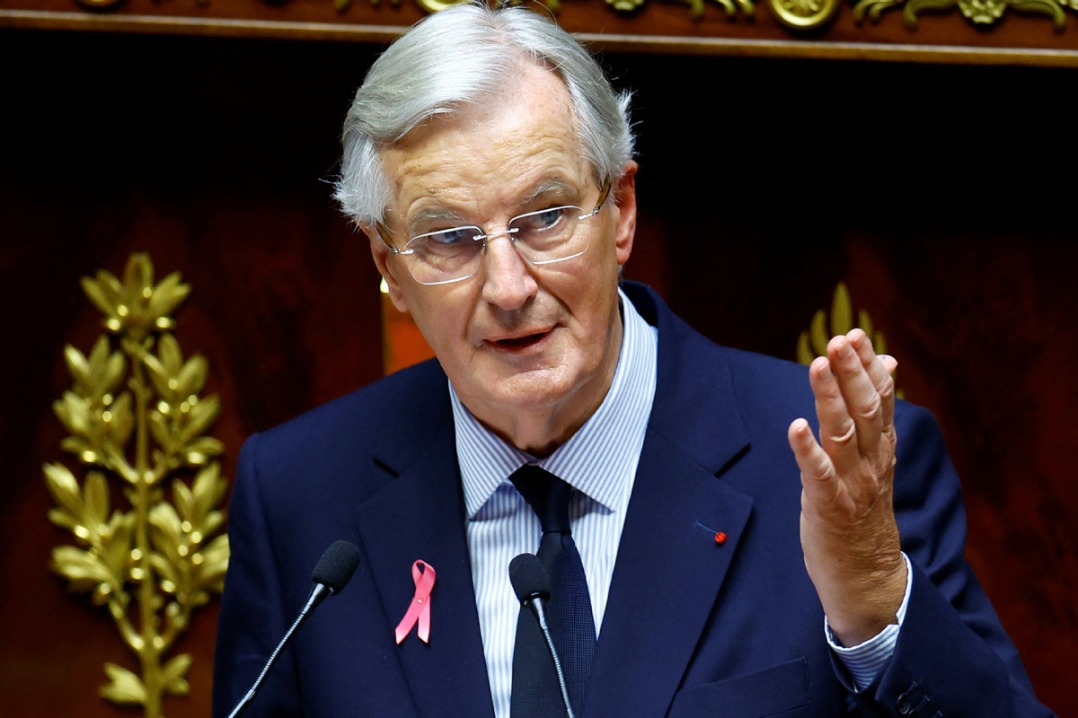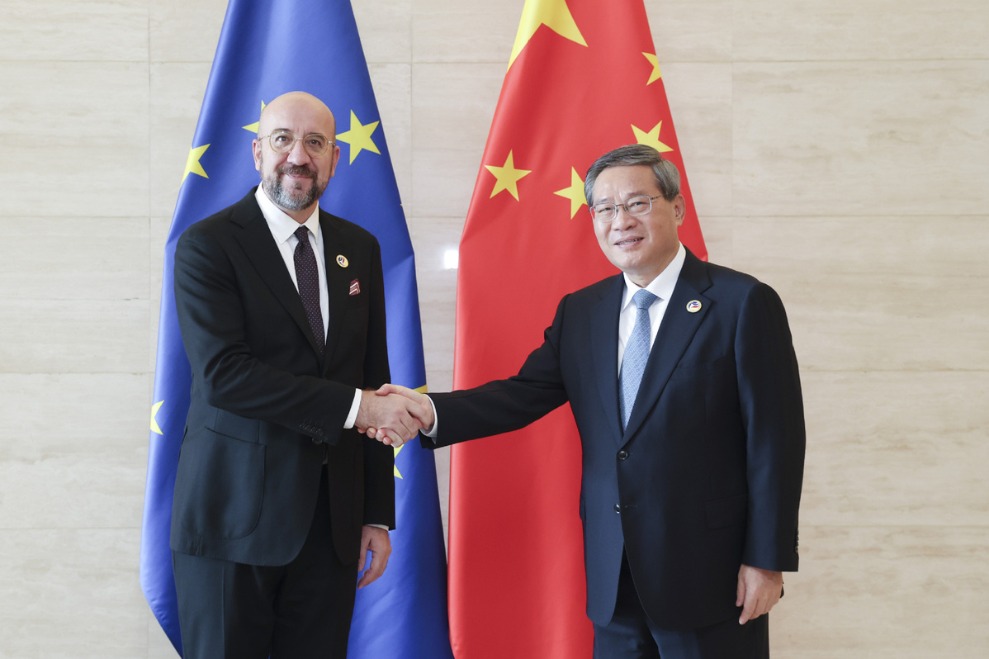Starmer faces daunting list of challenges as new UK PM
Labour govt gets to work on agenda tackling issues at home and abroad


British Prime Minister Keir Starmer has a full in tray awaiting him as he gets used to life in Downing Street following his Labour Party's resounding victory in last week's general election.
Starmer on Saturday gathered his newly appointed cabinet behind a bold new agenda that focuses on overhauling the nation's struggling public services and mending strained international relationships. He embarked on a whistlestop tour of the UK on Sunday, aiming to rebuild relationships with devolved administrations. His itinerary began with an evening stop in Scotland, followed by visits to Northern Ireland and Wales before heading back to London. Starmer will leave for Washington on Tuesday to attend a NATO summit.
At press conference on Saturday, Starmer expressed his intention to go beyond merely discussing challenges with the first ministers, but that he sought "to establish a way of working across the United Kingdom that will be different and better to the way of working that we've had in recent years".
In his first speech as prime minister on Friday, Starmer said he hopes his government could heal the lack of trust and hope that the public had in politicians after 14 years of rule under five different Conservative Party prime ministers.
"This wound, this lack of trust can only be healed with actions, not words," he said. "I know that, but we can make a start today with the simple acknowledgment that public service is a privilege and your government should treat every single person with respect.
"Whether you voted Labour or not, especially if you did not, I say to you directly, my government will serve you."

It will indeed soon be time for actions not words as he faces up to major challenges and duties at home and abroad in his new job.
The first one will be attending the NATO summit in Washington DC, starting on Tuesday.
Currently, NATO members are expected to spend 2 percent of GDP on defense, the previous Conservative government had supported an increase to 2.5 percent. During the election campaign, Starmer refused to answer questions from the Politico website about where he stood on the matter, but he will soon find that he cannot duck the issue.
He will have the advantage of familiarity when he makes his NATO debut, however, as he met several leaders at the D-Day 80th anniversary commemorations in Normandy in June.
There, Starmer met Ukraine leader Volodymyr Zelensky, whose fortunes are an integral part of another challenge he faces, and who was one of the first world leaders to congratulate him on his win.
"Ukraine and the UK have been and will continue to be reliable allies through thick and thin," Zelensky wrote on social media platform X.
"We will continue to defend and advance our common values of life, freedom, and a rules-based international order."
Over the last two years, the fallout of the Russia-Ukraine conflict has caused huge disruption to energy prices, which have been a major contributor to Britain's cost of living crisis, another significant election issue.
Labour's answer is to set up a new publicly-owned clean energy company called GB Energy, which it is claimed will deliver 100 percent clean power by 2030, save money, and make the country energy-independent.
Ed Matthew, campaigns director at independent climate change think tank E3G, said the election result meant Starmer "now has a historic public mandate to accelerate climate action, invest in the industries of the future and restore UK climate leadership. The UK is back in the race to net-zero."
Gaza policy
Another major international issue with an impact at home for Starmer is the ongoing crisis in Gaza.
In an interview on radio station LBC last October, Starmer, who is a former human rights lawyer, said Israel "has the right" to withhold power and water from Palestinians in Gaza, adding "Obviously, everything should be done within international law," but this stance continues to fuel resentment against Labour.
The party's winning margin in the election could have been even bigger had it not lost several seats, and come close to losing others, in areas where the voter demographic made Gaza a particularly volatile issue.
Former Labour Party leader Jeremy Corbyn, a prominent supporter of the Palestinian cause who was expelled from the party, stood as an independent candidate and won his seat comfortably ahead of the Labour candidate.
And then there is immigration — something on which the Conservatives placed great emphasis in the election campaign, but which contributed significantly to the rise of the right-wing Reform UK party, which cost the Conservatives votes across the country.
Britain's exit from the European Union has left it with no legislative means to return asylum seekers who cross the English Channel in small boats.
Huge political and financial capital was expended by the previous Conservative government on a proposal to send people to Rwanda, with no results, and during the campaign Starmer promised that should he win, he would "get rid of the policy straight away".
Starmer announced on Saturday that he would terminate the controversial policy of sending illegal migrants to Rwanda.
He dismissed the policy as a mere "gimmick", declaring it conclusively "dead and buried". He argued the plan has "never been a deterrent "as it would only deport "less than 1 percent" of small boat arrivals.
The full cost to taxpayers and financial consequences of abandoning the Rwanda deportation policy remain unclear. Additionally, the future of 52,000 migrants previously slated for deportation is now uncertain, reported the BBC.
But Reform securing its first elected members of parliament means that the issue will now be discussed even more loudly than before, and so far Labour have not entirely explained what they intend to do, and how.
































